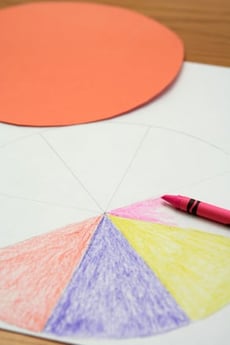4th Grade Understanding Fractions Activities
About 4th Grade Understanding Fractions Activities
On Education.com, 4th grade fraction activities help students visualize, compare, and understand parts of a whole using hands-on materials like pizza slices, paper plates, and LEGOs. These engaging exercises promote a strong conceptual foundation for fractions, emphasizing equivalence, part-whole relationships, and comparison. Primary resources include printable worksheets, fraction bingo games, and interactive story problems that make learning fractions enjoyable and practical.
Skip counting, fraction models, and number line exercises sit alongside interactive lessons that guide students through exploring fractions. Education.com’s resources support variety in teaching methods, allowing educators and parents to choose inventive ways like dough modeling, folk art inspired by fractions, or simple lab-based experiments. These crafted lessons make abstract concepts tangible and help students see how fractions relate to everyday objects and activities.
Using these materials, teachers and parents can easily introduce, reinforce, and assess understanding of fractions, saving time and enhancing engagement with well-structured learning activities. Students develop numerical fluency, problem-solving skills, and a deep understanding of fractions while enjoying creative and interactive lessons. All resources are designed to make mastery of fractions accessible and fun.
Skip counting, fraction models, and number line exercises sit alongside interactive lessons that guide students through exploring fractions. Education.com’s resources support variety in teaching methods, allowing educators and parents to choose inventive ways like dough modeling, folk art inspired by fractions, or simple lab-based experiments. These crafted lessons make abstract concepts tangible and help students see how fractions relate to everyday objects and activities.
Using these materials, teachers and parents can easily introduce, reinforce, and assess understanding of fractions, saving time and enhancing engagement with well-structured learning activities. Students develop numerical fluency, problem-solving skills, and a deep understanding of fractions while enjoying creative and interactive lessons. All resources are designed to make mastery of fractions accessible and fun.

